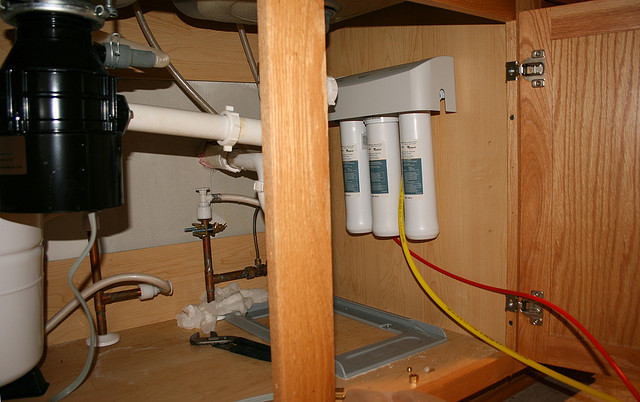Know Your Way Around Water Filters
We all know that giving up bottled water can save you a lot of money, yet many of us are still not ready to turn to tap water and give up the luxury of water filtration. For those of you who want the safest and best-tasting water there is, a home water filter is a much affordable solution than costly bottled water. There are different types of filtration devices,from simple, inexpensive pitchers to complex, cutting-edge systems.
Know Your Needs
To begin with, you should evaluate your specific needs with regard to water filtration. You might be interested in just a drinking water filter or decide that you need a shower filter, as well.In case you want to filter all the water in your home, know that it can’t be done with a single filter – you will different devices for drinking water and utility water. First you will need a pre-filter for the entire home to reduce dirt and sediment to approximately 10 microns. You can also add a water softener to remove hard minerals from utility water, as this will protect your plumbing fixtures and laundry. If you install a softener, however, it is recommended to also add a reverse osmosis system for drinking water, as it will to remove the salts that the softener releases into your house water.
Learn How They Operate
When it comes to the way water filters operate, absorption-based ones (those that use activated carbon) are by far the most frequently used type. When a filter is filled with carbon, particles which pass through simply bind to the molecules of the filter, thus trapping contaminants. As time passes, carbon becomes saturated with particles and consequently less efficient at capturing contaminants, which is why you have to change the filter every once in a while.Most faucet and pitcher filter systems use this basic method.
There are also different lesser-known yet innovative and highly efficient ways of filtering water. For instance, you can use ultraviolet (UV) light to purify water. This type of filter comes in a shape of a wand or pen that you swirl into a water-filled container for 60-90 seconds. Magnetic fields can also be used to effectively purify water, as well as devices that operate on ion exchange or reverse osmosis. Regardless of your water filtration preferences, make sure to opt for one that captures lead, mercury, benzene, arsenic, and microbes. Most filters come with a list of what will be removed from your tap water and the concentration of contaminants which may remain. When using your water filter, it’s also important touse water bottles that don’t contain contaminants such as bisphenol A (BPA).
Don’t Forget Replacement Parts and Warranty
Before deciding on a water filter, you should first check the cost of cartridge replacement. It is not a rare occurrence that a seemingly affordable filter ends up setting you back big bucks for maintenance. For instance, pitcher filters are relatively cheap to buy, but the cost of properly servicing them for a single year is often equal to buying a state-of-the-art filtration system, whose maintenance is substantially cheaper. You should go with a filter that comes with the longest possible warranty period for the housing, as the stainless steel one, which are designed to operate under constant pressure without any bursting or leaking issues.

